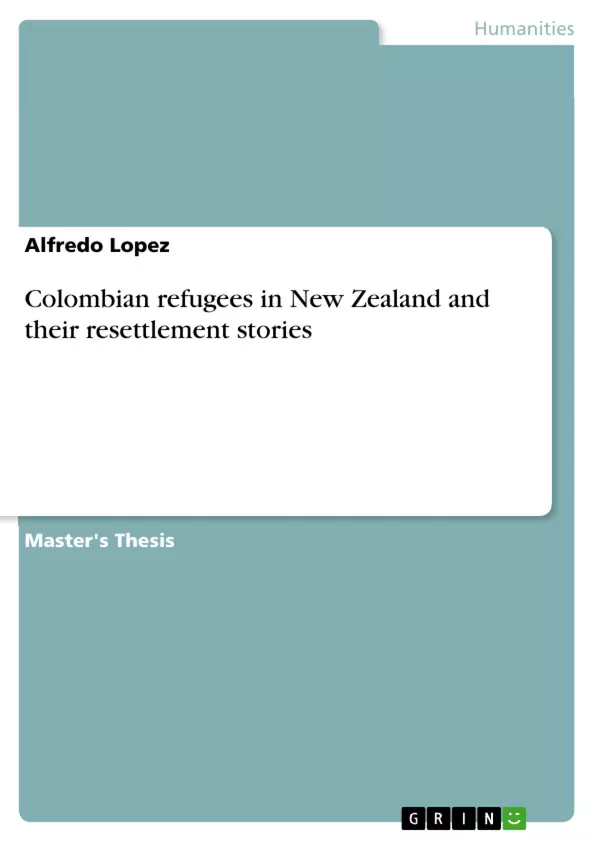This research focuses on Colombian refugees and their resettlement and integration stories in New Zealand. According to New Zealand Immigration, Colombian refugees have been arriving in the country since 2007. By the end of July 2016, New Zealand had 809 Colombian refugees resettled from Ecuador where they were recognised as urban refugees by the Ecuadorian government. An urban refugee is a refugee who lives in an urban area rather than in a refugee camp.
It is important to note that in Ecuador there are no refugee camps. Therefore, all refugees in Ecuador are considered as urban refugees. Thousands of Colombians have fled from Colombia to Ecuador because of the armed conflict that the country has faced for almost six decades. Once recognised as refugees in Ecuador, the United Nations High Commissioner for Refugees makes the recommendation or referral of some refugees to the New Zealand government, for them to be resettled in New Zealand.
This research collected the experiences of 13 Colombian refugees in their process of resettlement and integration in New Zealand. The study used a qualitative methodological approach of an oral history methodology (ethnographic- a collection of oral stories). As data collection methods, I have used oral history interviews, a focus group and participants' personal diaries.
Table of Contents
- Introduction
- Literature Review
- The Refugee Experience in New Zealand
- Integration and Resettlement
- Colombian Refugees
- Research Methodology
- Qualitative Research Approach
- Data Collection Methods
- Ethical Considerations
- Results and Analysis
- Resettlement Experiences
- Challenges to Integration
- Successes and Adaptations
- Perspectives on New Zealand
- Discussion and Conclusion
Objectives and Key Themes
This thesis aims to explore the resettlement and integration experiences of Colombian refugees in New Zealand, examining the challenges they face and the factors contributing to their successful adaptation. The research seeks to understand the perspectives of these refugees and identify potential areas for improvement in the resettlement program.
- Resettlement experiences of Colombian refugees in New Zealand
- Challenges faced by Colombian refugees during integration
- Factors contributing to successful integration and adaptation
- Perspectives of Colombian refugees on the resettlement program in New Zealand
- Potential areas for improvement in the resettlement program
Chapter Summaries
The introduction provides a background on Colombian refugees in New Zealand, highlighting the lack of academic research on this specific group. It outlines the research question and aims to explore the challenges affecting the successful integration of Colombian refugees. The literature review delves into existing research on the refugee experience in New Zealand, integration and resettlement processes, and the specific situation of Colombian refugees. The methodology chapter explains the qualitative approach adopted for this study, emphasizing the use of ethnographic methods such as oral history, focus groups, and participant diaries. This chapter also discusses ethical considerations involved in collecting and analyzing data from participants. The results and analysis chapter presents findings based on the collected data, focusing on the resettlement experiences of Colombian refugees, the challenges they encounter during integration, their successes and adaptations, and their perspectives on New Zealand. This chapter provides insights into the lives and experiences of Colombian refugees in New Zealand, shedding light on their integration journey.
Keywords
The main keywords and focus topics of this thesis include Colombian Refugees, resettlement, integration, resettlement challenges, discrimination, resignation, reconciliation, and exiles. These terms reflect the core themes and concepts explored in the research, emphasizing the experiences of Colombian refugees navigating their new lives in New Zealand.
- Quote paper
- Alfredo Lopez (Author), 2018, Colombian refugees in New Zealand and their resettlement stories, Munich, GRIN Verlag, https://www.grin.com/document/470263



